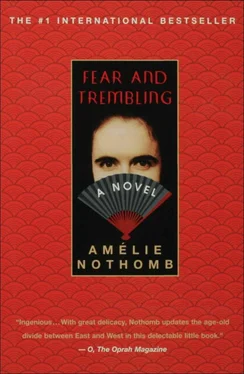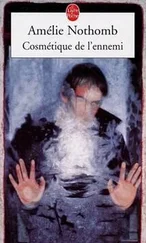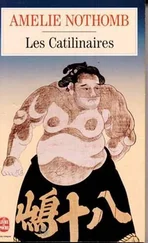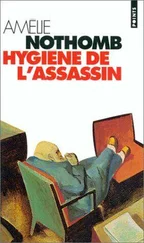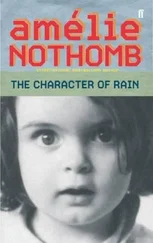He grabbed me the way King Kong did Fay Wray and dragged me out into the corridor. I was like a doll in his hands. My terror peaked when I saw that he was taking me into the men’s bathroom.
Fubuki’s threats came back to me: “You don’t know what could happen to you.” She had not been bluffing. I was going to pay for my sins. My heart stopped beating. My mind composed a will.
I remember thinking he was going to rape me and kill me. I hoped that he would kill me first.
A man was washing his hands at one of the sinks, but the presence of a third party seemed to have no effect on Mister Omochi’s evil designs. He opened the door to one of the cubicles and threw me onto the John.
I told myself my time had come.
He started yelling three syllables, over and over again, convulsively. So great was my terror that I didn’t understand what they were. I thought they must have been the equivalent of the kamikazes’ “banzai!” used very specifically for sexual assault.
He went on screaming these three sounds. Suddenly, the dim light of understanding dawned.
“NO PE-PA! NO PE-PA!”
Which meant in Japanese-American, “No paper! No paper!”
The vice-president was pointing out in his fashion that the toilet-paper roll had run out.
I leapt up and hurried off to the storeroom, then returned on my quaking legs, my arms laden with rolls of paper. Mister Omochi watched me install one in the appropriate place, shouted something that was presumably not a compliment, threw me out, and locked himself in the now fully equipped cubicle.
My heart in shreds, I took refuge in the ladies’ room, crouched down in a corner, and started crying.
Fubuki chose that moment to come and brush her teeth. In the mirror I could see her, her mouth frothing with toothpaste, watching me weep. Her eyes were jubilant.
Just for a moment, I wished her dead. Memento mori
I REMEMBER HAVING loved a Japanese film called Merry Christmas, Mister Lawrence, set during the Pacific War in about 1944, about a group of British soldiers in a Japanese POW camp. One of the Englishmen (played by David Bowie) and one of the Japanese officers (played by Ryuichi Sakamoto) formed what certain textbooks might call a “paradoxical relationship.”
Perhaps because I was young at the time, I was completely overwhelmed by the film, especially by the scenes depicting the fraught interaction between the two heroes. The film ends with the Englishman being condemned to death by the Japanese officer.
Toward the end the Japanese officer comes to contemplate the Englishman, who has been buried up to his head, a form of execution that kills its victim either by exposure, hunger, or thirst. The British officer is barely alive by this point, his light-skinned complexion the color of a slightly blackened joint of beef. I was sixteen and it struck me that dying like that was a beautiful way of demonstrating one’s love.
I couldn’t help sensing a parallel between this story and my own tribulations in the Yumimoto Corporation. Of course there were huge differences, but I did feel like a prisoner of war, and my torturer was at least as beautiful as Ryuichi Sakamoto was handsome.
One day, while she was washing her hands, I asked Fubuki whether she had seen the film. She said she had.
“Did you like it?”
“The music was good. Too bad that the plot was so unrealistic.”
(Perhaps without realizing it, Fubuki was guilty of the same “soft” revisionism afflicting so many young people in the Land of the Rising Sun. Her compatriots during the Second World War had nothing to be ashamed of, it went; their incursions into Asia were intended purely to protect the indigenous populations from the Nazis. I was not in a position to argue with her.)
“I think that you have to see the film as a metaphor.”
“A metaphor for what?”
“For the relationships between people. For example, the one between you and me.”
She looked at me, perplexed, wondering what sort of lame-brained idea I was entertaining.
“Yes,” I went on. “There’s the same difference between you and me as there is between Ryuichi Sakamoto and David Bowie. East and West. Behind the surface conflict lies reciprocated curiosity. Misunderstandings hide a genuine desire to understand one another.”
However convincing I thought my argument, I realized that I had again gone too far.
“No,” she replied.
“Why?”
I wondered which withering reply she might choose: “I’m not in the least bit curious about you” or, “I have absolutely no desire to understand you”; or, “how dare you compare yourself to a prisoner of war!”; or, “there is something disturbing about the relationship between those two characters that I would have nothing to do with.”
Instead, in a polite and neutral voice, she replied with an observation both clever and wounding:
“I don’t think you look anything like David Bowie.”
I had to admit she was right.
I SPOKE RARELY in my new post, not because it was forbidden but because an unwritten rule stopped me. When your job is as dreary as mine was, the only way of preserving your honor is by remaining silent.
If a bathroom attendant is chatty, people are likely to think she feels comfortable with her work, that she feels she belongs there, that she finds her job so fulfilling that she feels a desire to babble.
If, on the other hand, she remains mute, it is because she treats her work as monastic mortification; she is expiating the sins of humanity. The French Catholic writer Georges Bernanos and Hannah Arendt talk of the crushing banality of Evil; the bathroom attendant knows the crushing banality of dejection, a dejection that always remains the same however disgusting the superficial differences.
Her silence expresses her quiet desperation. She is the Carmelite of the rest rooms.
I was mute, therefore I thought.
I thought, for example, that despite the lack of physical resemblance between David Bowie and myself, what I had said to Fubuki about the film was true. The comparison held. Let’s face it. For her to have condemned me to the life she had, her feelings toward me really couldn’t have been what you might call normal. I was not the only person she despised at the Yumimoto Corporation. There were others she could have martyred. She had focused her cruelty on me alone.
I decided that I had been accorded a privilege.
READERS MIGHT THINK I had no life outside of Yumimoto. This was not the case. During this whole ordeal I was leading a life that was far from being either meaningless or insignificant.
I have nonetheless decided not to talk about that other life in these pages. First of all, my extra-Yumimoto existence is beside the point. Second, given the hours that I was working, my private life—though, I insist again, not insignificant—was kind of limited in terms of time.
Thirdly, most importantly—and a little schizophrenically—descriptions of my other life will not be found here because when I was stationed at my outpost in the bathrooms on the forty-fourth floor at Yumimoto corporate headquarters, scouring and scrubbing away, I simply found it impossible to believe that merely eleven subway stops away existed a place where people loved me and respected me, people who made no automatic connection between me and a toilet-bowl brush.
When these nocturnal and weekend elements of my life came to mind when I was working, they seemed like an illusion. That house and those friends? An illusion. An invention. What possible link could there be between my days and my nights? I thought of those photographs of towns flattened by bombs, showing wastelands of space with ruined, lifeless houses devoid of form—and yet whose commodes still stood, proudly open to the skies, perched defiantly on their miraculously intact plumbing. When the Apocalypse comes, the only traces of human civilization to survive will be its porcelain monuments. My life is here alone, in these rest rooms on the forty-fourth floor. They are my world.
Читать дальше
